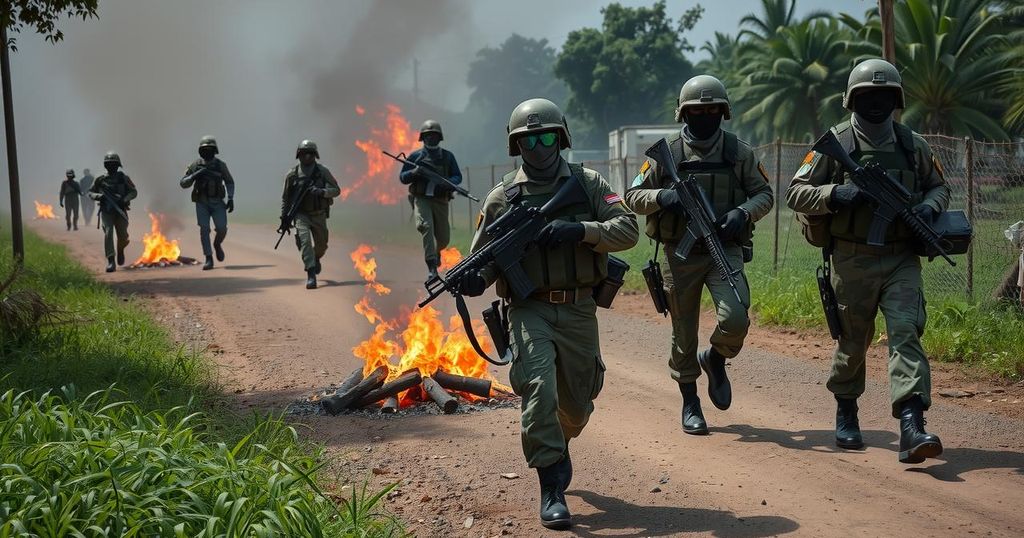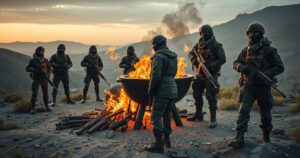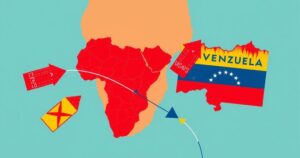Conflict Resurgence in Eastern Congo: A Ceasefire Violated

Fighting has resumed in Eastern Congo, violating a ceasefire between the M23 rebel group and the Congolese army. The M23 has been reinvigorated since 2022, with accusations of Rwandan military support, which Rwanda denies. Diplomats from Congolese and Rwandan foreign ministers are negotiating troop withdrawals, while the United States expresses concern over violations, and leaders plan a significant meeting on December 15.
Fighting has resumed in Eastern Congo, violating the recently established ceasefire, as reported by both the Congolese army and the M23 rebel group. This resurgence of hostilities raises significant concerns regarding the future of the peace accord, particularly in light of the M23’s ongoing military campaign since 2022. Although the M23 has stated its intention to adhere to a prior ceasefire agreement from March 2023, their actions suggest a deviation from this commitment, especially after the withdrawal of Rwandan military support.
The M23 rebel force, comprised primarily of individuals from the Tutsi ethnic group, has intensified its insurgent activities in the region. The Congolese government and the United Nations have accused Rwanda of providing military assistance to the M23, an allegation that the Rwandan government has consistently denied. Nevertheless, United Nations experts revealed in July that approximately 3,000 to 4,000 Rwandan troops are believed to be operational within Eastern Congo, collaborating with M23 forces. A recent meeting between the foreign ministers of Congo and Rwanda aimed to establish disengagement procedures for Rwandan troops, signaling potential diplomatic efforts toward resolution.
The ongoing violence is alarming, prompting international concern, including a statement from the United States expressing their grave worries over the violation of ceasefires by the M23. As tensions escalate, the leaders of Congo and Rwanda are scheduled to meet on December 15, mediated by Angola—marking their first official engagement since 2023.
The conflict in Eastern Congo is rooted in longstanding ethnic tensions and political unrest in the region, exacerbated by external influences and armed rebel groups like the M23. The M23’s resurgence in 2022 has reportedly been supported by Rwanda, prompting accusations of interference from the Congolese government and the international community. This situation has drawn attention from organizations, including the United Nations, which have sought to monitor and mediate ceasefires, while also addressing the humanitarian implications of the ongoing conflict. The delicate relationship between Congo and Rwanda heavily influences local stability, with the involvement of both national and international stakeholders being critical for any potential peace agreement.
In summary, the recent resumption of fighting in Eastern Congo illustrates the fragility of peace efforts amidst allegations of foreign military support. While diplomatic negotiations are underway to address the presence of Rwandan troops, the continued hostilities by the M23 pose serious challenges to achieving a lasting ceasefire. The international community remains vigilant, emphasizing the need for a comprehensive resolution to the conflict, as future meetings between Congolese and Rwandan leaders may present further opportunities for dialogue and peacebuilding.
Original Source: www.usnews.com






